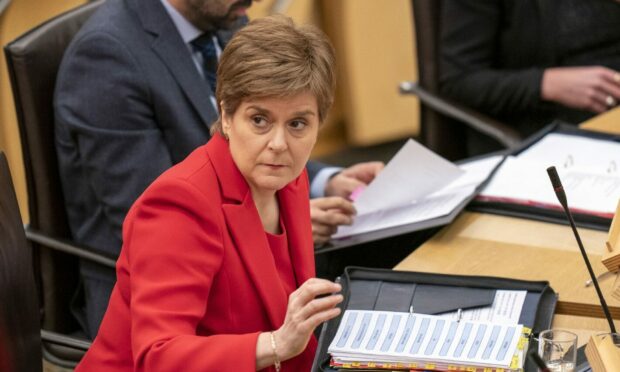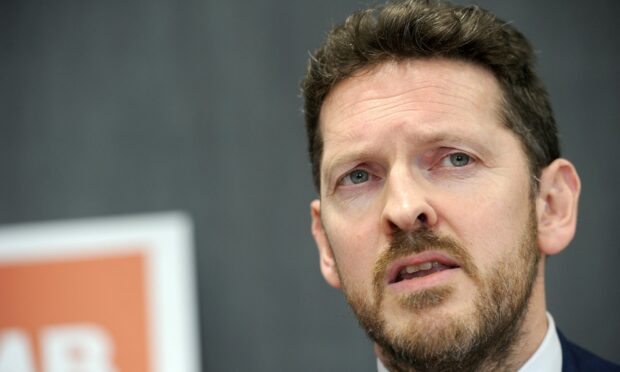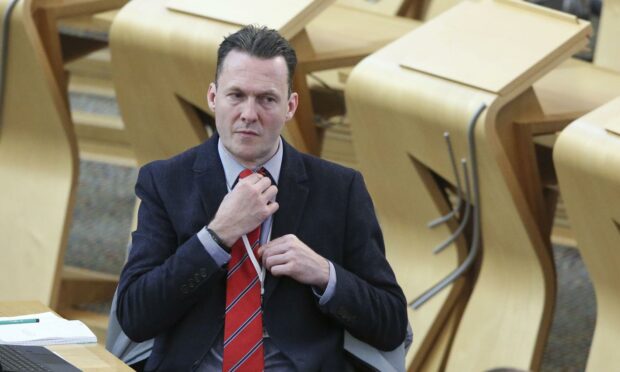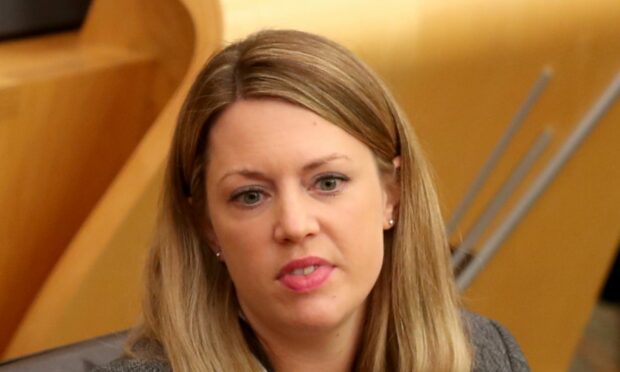Nicola Sturgeon faced immediate calls to act on areas she controls one day after the SNP’s 2023 referendum hopes were put on ice by the Supreme Court.
And while the constitution continues to dominate national debate, these are the big questions she was asked to answer at the weekly First Minister’s Questions on Thursday.
1 – Schools
Striking teachers demonstrated outside Holyrood at the same time as Ms Sturgeon fielded opposition questions inside parliament.
All councils in the north and north-east were affected by the industrial action as teachers took to the picket lines.
Ron Constable, Aberdeen secretary of teachers’ union the EIS, said the pay offer of 6.85% was in effect a wage decrease due to inflation. Teachers are bargaining for 10%.
Shetland teacher Ronnie Martin, who is Brae’s EIS rep, said school staff have been “systematically underpaid for a long time”.
SNP education chief Shirley Anne-Somerville said the latest offer was “fair and progressive”. She claimed an improved deal would lead to budget cuts.
2 – Health
Nurses are preparing for their first strike in history.
And in parliament, the first minister was grilled over the impact of squeezed budgets and long waiting times.
It emerged earlier in the week that NHS board executives even discussed creating a two-tier system where some patients pay.
Ms Sturgeon insisted she remained fully committed to GP appointments and operations remaining free as she clashed with Douglas Ross and Anas Sarwar.
But a top Highland doctor, who chairs the BMA union in Scotland, warned the NHS risked “sleepwalking into a two-tier system”.
Dr Iain Kennedy said: “Healthcare workers cannot do any more than they are currently doing – the entire workforce is on its knees.”
Meanwhile, the latest figures show just under 70% of patients who attend A&E in the Grampian region are seen by a doctor within four hours.
3 – Justice
Scotland’s justice system was put in the spotlight as Ms Sturgeon was urged to ditch a scheme giving mobile phones to prisoners.
MSP Russell Findlay branded the £4.1 million policy “costly and dangerous”. He said funds should go to frontline services instead.
The first minister admitted budgets are being stretched, but defended the scheme and said it was vital inmates are able to communicate with loved ones.
It was warned last month cuts to Police Scotland’s budgets could put the public at risk.
4 – Transport
The SNP’s Jenny Gilruth was quizzed on dualling the A96 as she was given a warning not to abandon the project.
North-east Tory Liam Kerr claimed it would be an “outright abdication of responsibility” if the Scottish Government ditch the scheme.
More than a dozen people have died following crashes on the A96 in the past three years.
Ms Gilruth said a review on the road widening programme – which consulted thousands of locals in the area – would be released by the end of the year.
Elsewhere, Ms Sturgeon has been under frequent pressure to explain massive delays to ferries.
Furious Scots living off the mainland from Shetland to the Hebrides have warned locals are quitting their communities due to the “chaotic” ferry system.
5 – And the constitutional continues
Opposition leaders pushed the first minister to fix areas of devolved responsibility.
But the SNP and Ms Sturgeon also want to push the case for independence.
Ms Sturgeon said there was an “undeniable” mandate to hold a referendum and accused the UK Government of “democracy denial” – controversial phrasing which cause an entirely new argument.
Backbench nationalists and campaigners who rallied in the north-east on Wednesday will want her to keep pushing for a rerun of the 2014 vote.
Former SNP leader and Alba Party chief Alex Salmond insisted the UK Government had “overplayed their hand” by refusing to grant a vote.
A poll published overnight underlined how the debate will continue to dominate.
Half of Scots would vote SNP at the next general election if a victory for the party could lead to Scottish independence.
The snap poll of 1,006 Scottish voters was carried out by Find Out Now for Channel 4 News on Wednesday, after the UK Supreme Court ruled another independence referendum cannot be held without the backing of Westminster.





Conversation